What's eating Andreas Klöden?
The elusive rider determined to stay out of the limelight
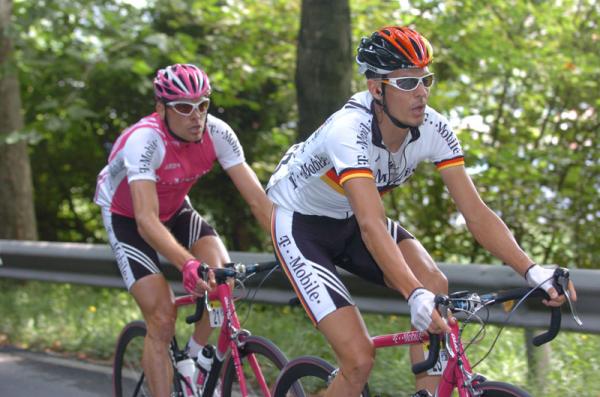
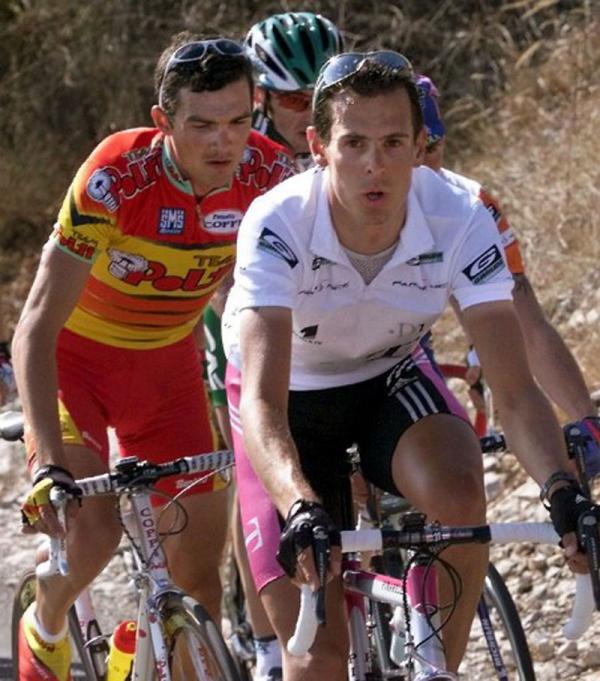
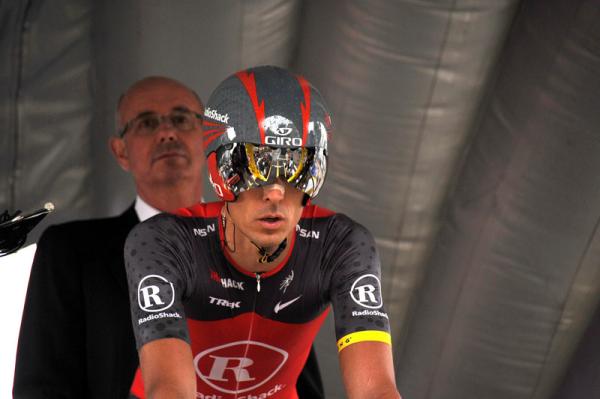
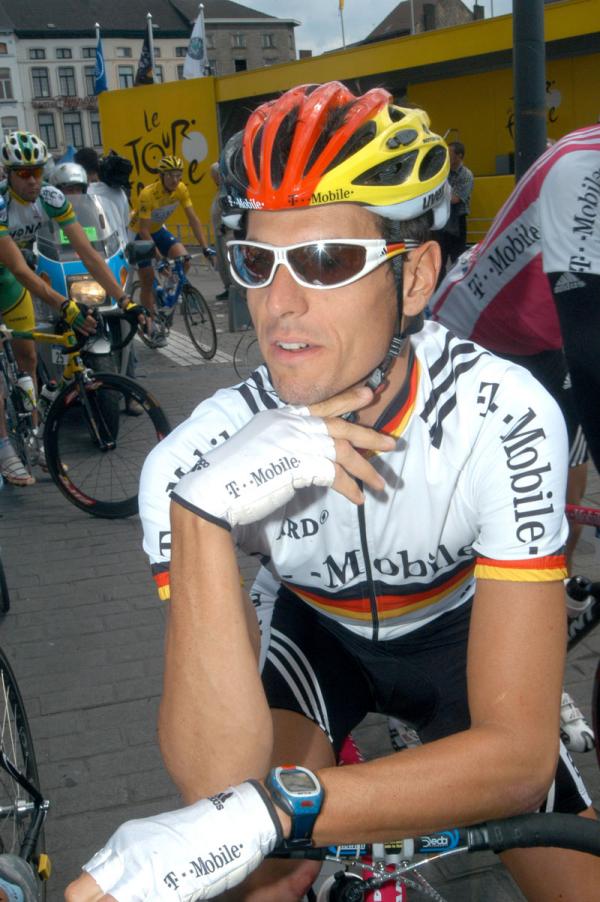
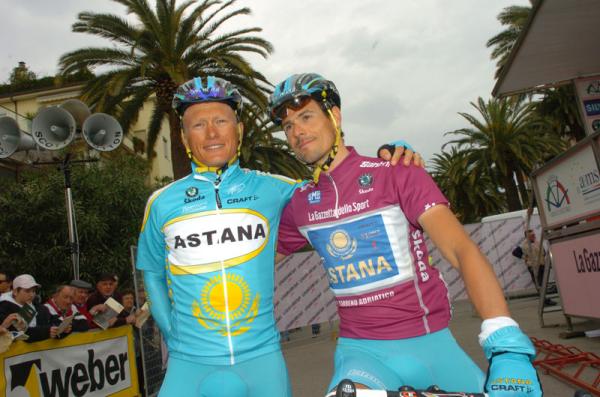
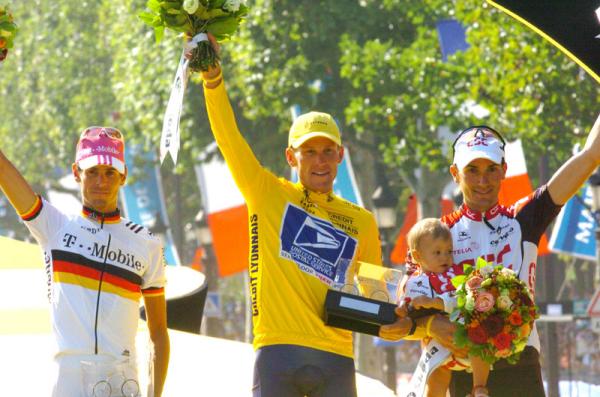
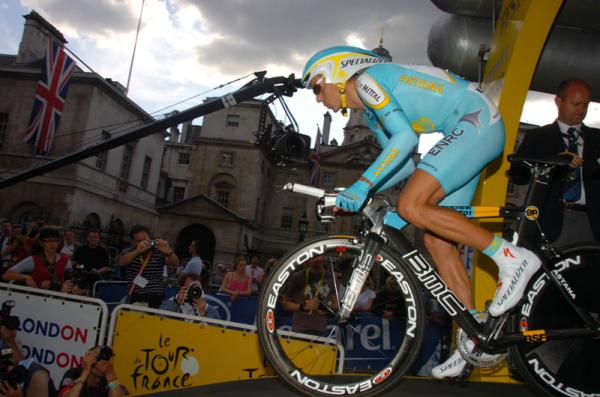
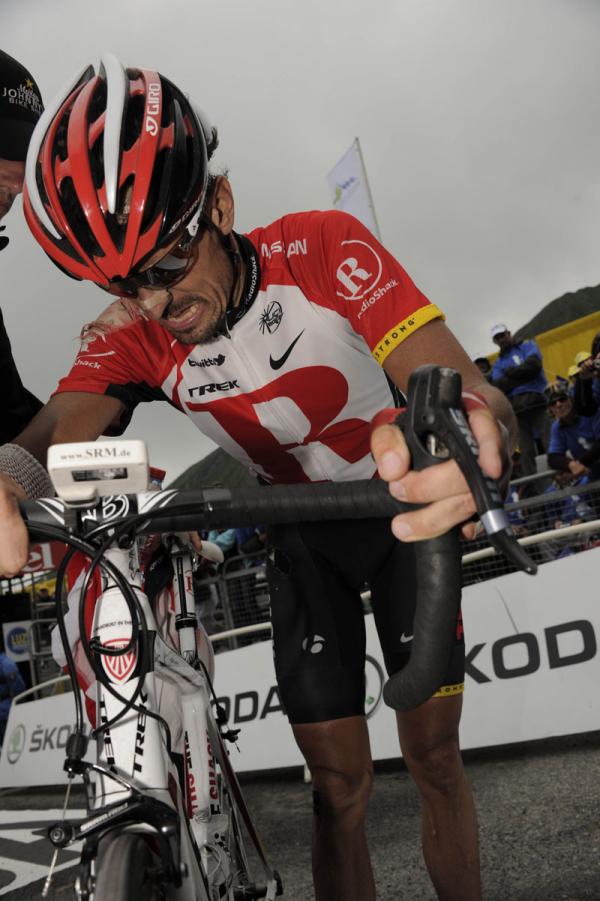
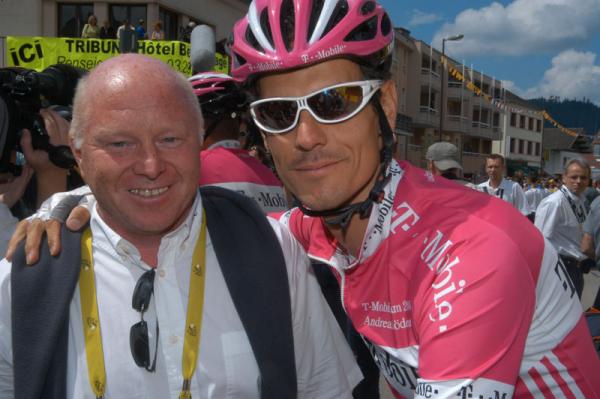
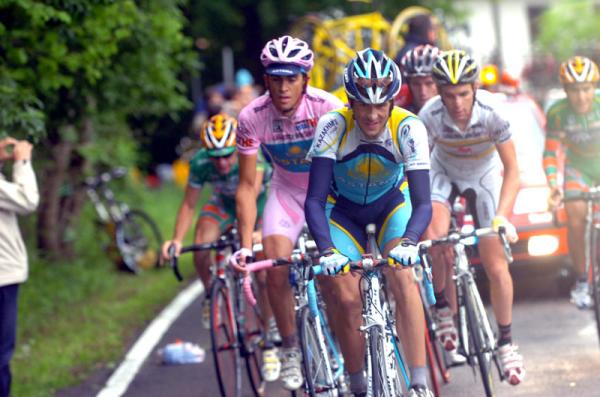
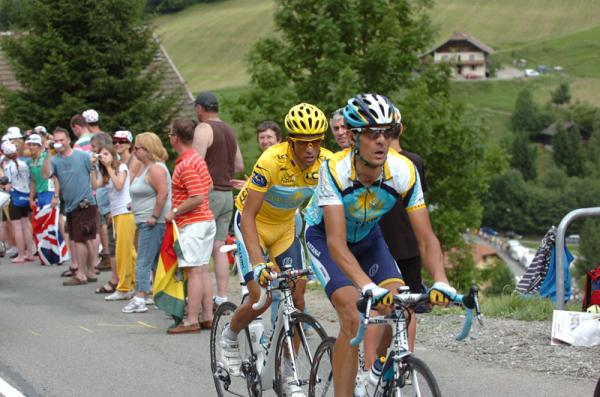
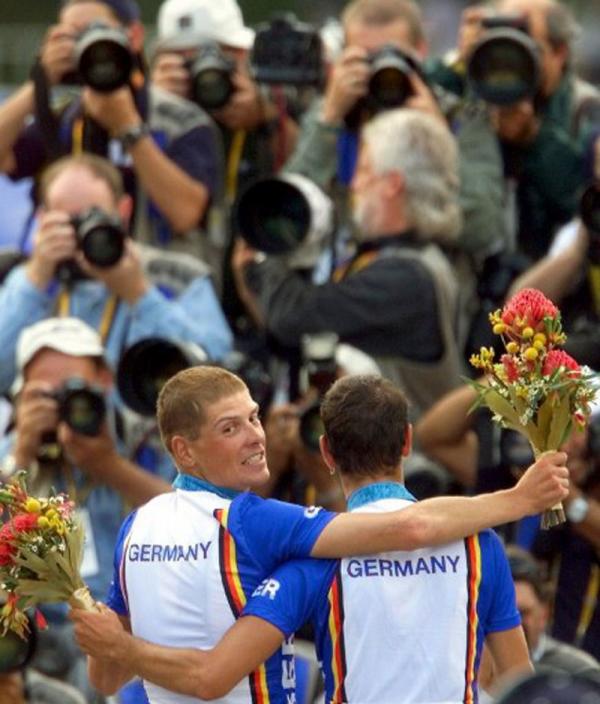
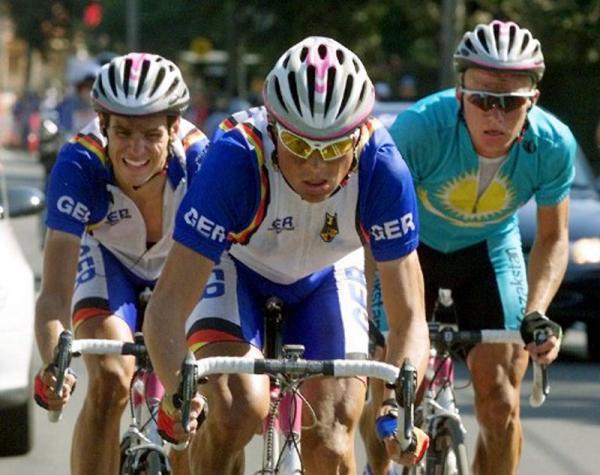
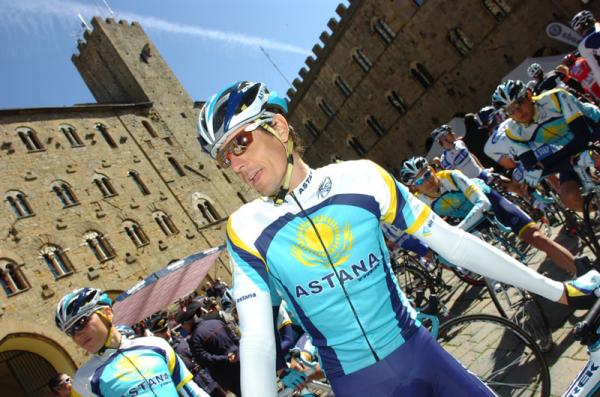
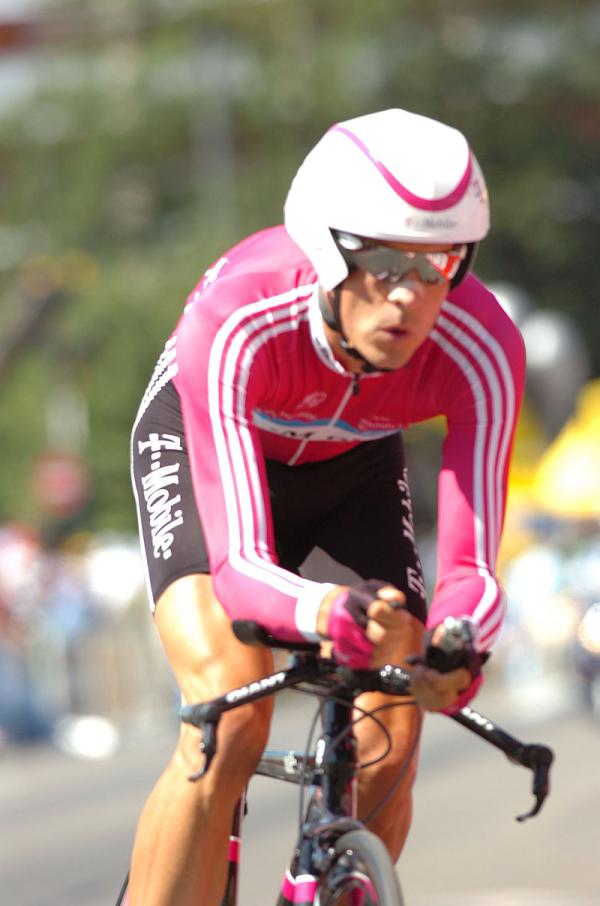
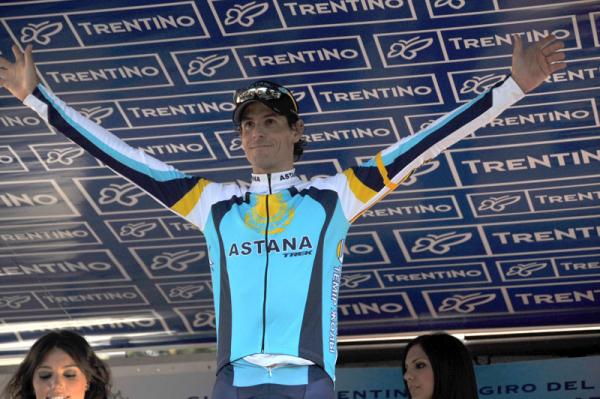
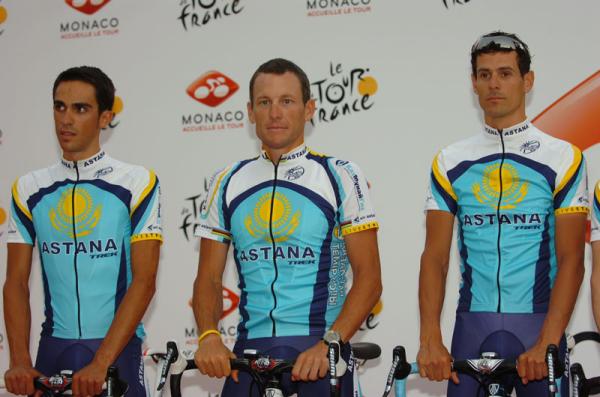
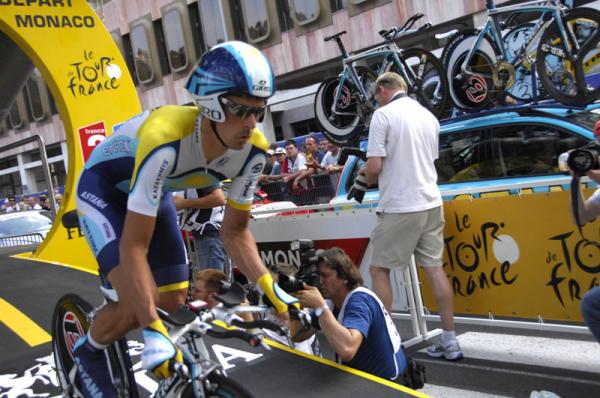
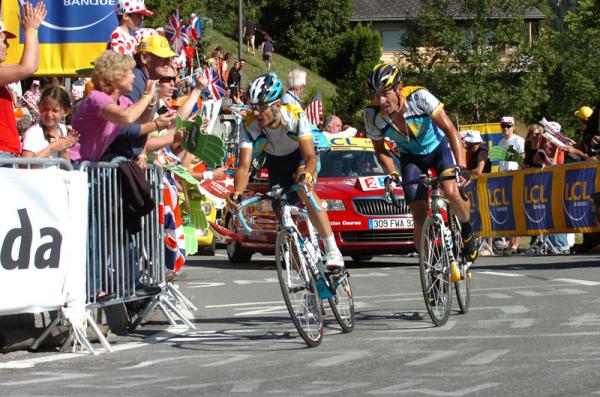
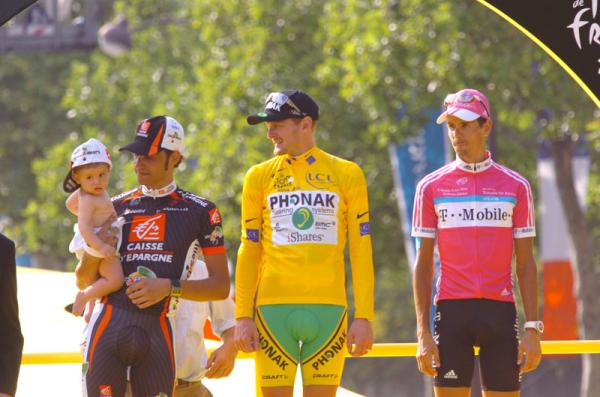
This article was published in the June issue of Procycling.
Bonn prosecutor invites Klöden to settle case
Klöden bemoans state of German cycling
Klöden on Ullrich, the German media and staying motivated
11 years on, Klöden takes his second win in Basque Country
Klöden and Brajkovic to lead RadioShack in Vuelta a España
Klöden: Schlecks must forget brotherly love to win Tour de France
Germany’s most successful active rider is also its most elusive and reclusive. Just how, after Klöden’s decade and a half in the pro peloton, did it come to this?
When Andreas Klöden calls time on his career at the end of this year or next, he will most likely never have won a major tour, but in one respect he may have succeeded where all of his illustrious former teammates and contemporaries failed.
For seven years Lance Armstrong out-rode Jan Ullrich. Alberto Contador eventually raced away from Armstrong. Yet none of that trio ever scored a victory as emphatic and definitive as Klöden’s over an even more obdurate opponent. No, Klöden never beat Armstrong, he spent a career playing second fiddle to Ullrich, and he was Contador’s underling. But - and it’s a big one - he has comprehensively trounced, possibly seen off for good, the media.
“Ah, you ask for an interview with Klöden but it’s not so easy,” says the RadioShack-Nissan press chief Philippe Maertens, proving that euphemisms are as much a Belgian specialty as chocolates and waffles. “Andreas hasn’t been doing interviews for years now. I can ask but I already know what he’ll say.”
Maertens claims that Klöden has no interest. Klöden would agree and add, as he did in an exceptional rant to the German press in 2009, that his self-imposed media ban makes for a ‘quiet life’. When he has something to say these days, like a lot of riders, he gives it to us via Twitter. Thus, in August 2010, he aimed a furious diatribe at the German Cycling Federation that he effectively deserted years ago by taking out a Swiss race licence. “The Germany Cycling Federation is an amateur! No nomination criteria, no professional guidance. No one has any idea about professional cycling,” he foamed.
Just over a year later, he disowned the ‘Vaterland’ altogether. At RadioShack-Nissan’s team presentation in Luxembourg, every rider’s national flag blinked onto a giant screen as they took to the stage - except Klöden’s. He chose the blue background and gold stars of the European Union. He has not raced in Germany since the 2007 Regio Tour. He has not represented the national team since the 2006 World Time Trial championship in Salzburg.
Get The Leadout Newsletter
The latest race content, interviews, features, reviews and expert buying guides, direct to your inbox!
One of the named targets of his 2010 Twitter rant, German Cycling Federation Vice President Udo Sprenger, told us in an email that, “In light of the T-Mobile doping controversies, he felt that he’d been unfairly treated by the public, the media, federation representatives and the national Olympic association.”
The last straw, says Sprenger, was Klöden’s ‘diplomatic’ non-selection for the Olympic Games in Beijing in 2008, at a time when the International Olympic Committee was investigating whether he and then Telekom teammates, Jan Ullrich and Alexandre Vinokourov had doped their way to medals in the Olympic road race in Sydney in 2000.
“After that, in his own individual way, he wrote on his website and on Twitter. Neither the German Cycling Federation nor I responded because it’s not our style,” Sprenger wrote. He then added, “There’s nothing further to say on this matter.” Or, indeed, as far as Andreas Klöden is concerned, on anything else.
First steps from East Germany
At first the Deutsche Telekom riders noticed nothing unusual about the scrawny kid who had grown up in Forst, a remnant of communism parked on the Polish border. Actually, that’s a lie - it was unusual that a rider touted as a wunderkind could look as ordinary as Klöden did in his debut 1998 season. Two years earlier, he had finished third in the Under 23 World championship Time Trial in Lugano. In 1997, Klöden had dazzled alongside top pros at the Rheinland-Pfalz Rundfahrt. Also that year, Festina’s German sprinter Marcel Wüst found himself in a six-man lead group in Majorca.
Wüst remembers: “He was this little skinny thing but we got to this climb just outside Manacor, Sa Vall, he put it in the big ring and he just ripped the thing apart. I hung on by the skin of my teeth but I’d never seen anything like it. It was like, ‘Fuuuuuck, who is this guy?’”
One of the team’s mainstays, Rolf Aldag, waited to be wowed. And waited.
“When you rode behind Jan, you could sense his power,” Aldag says. “It was impressive. But you didn’t get that with Andreas. He was small and tight and fragile-looking.”
Off the bike, the 23-year-old Klöden had even less of an aura. His father was an ex-fighter pilot, his mother an art teacher, but there was little to hint at esoteric beginnings. Aldag says that he was shy and in many respects indistinguishable from other graduates of the Berlin sports school, the Berlin Kinder- und Jugend Sportschule. That was where Klöden had met Ullrich. But in 1998 the two friends were separated by two years in age and light years in development.
What happened next, no one could fathom. But years later, a commission investigating doping by the university of Freiburg and T-Mobile doctors Lothar Heinrich and Andreas Schmid would have an idea: they discovered that the Freiburg doctors had sent a package of medicines worth 1,000 Deutschmarks to Klöden’s then girlfriend Bettina on 9 March 2000. Two days later, Klöden won on the Col d’Eze in Paris-Nice. Twenty-four hours later, he had become only the second German to triumph in the race to the Sun.
Klöden claimed in 2008 that this package contained only legal medicines. That may have been the case. The fact was that, in those first few months of 2000, he looked a different rider. A month after Paris-Nice, he won another mountain time trial and with it the Tour of the Basque country.
“Everyone was shocked,” according to Giuseppe Guerini, who had joined the team the previous year and at first found Klöden “abrasive and arrogant”. The Italian goes on: “He was a good time triallist, a decent climber, but we never thought he’d be capable of riding that well over a week, like he did at Paris-Nice and in the Basque Country.”
The millennium season continued in the same successful vein, culminating in the Telekom clean-sweep of the Olympic podium in Sydney. On a rainy bus journey to the race course, Ullrich had looked gloomily out of the window and asked Klöden whether he had enough loose change to pay for the driver to take them straight to the airport. A few hours later, the sun was glinting off Ullrich and Klöden’s medals, respectively gold and bronze, as well as Alexandre Vinokourov’s silver. That podium photograph somehow foretold the next obstacles in Klöden’s career.
The issue wasn’t only that Ullrich and Vinokourov were barring his way at Telekom; indeed Klöden has almost always performed best when in the shadow of a more famous name. No, on the contrary, the problem may have been that he was now part of Ullrich’s and Vinokourov’s clique, one of two competing blocs within the Telekom squad. Erik Zabel presided over the other and between them the two groups were slowly prising control out of the management’s hands. To that was added another problem: money. Telekom had plenty and Klöden knew it better than most, having become one of the sport’s best-paid riders by virtue of a three-year contract extension.
But the man with whom he struck that deal, team manager Walter Godefroot, would soon became impatient. Klöden’s 2001 season was worse than his 2000 campaign, 2002 was again winless and joyless, and 2003 another annus horribilis.
“The credit I had earned in 2000 reached its expiry date. That was Walter’s view. I then had my salary cut by a few per cent for 2003,” Klöden told Procycling in 2004.
Even when Klöden won the German national champion’s jersey in 2004, his T-Mobile bosses’ lack of faith in him was clear. “That jersey doesn’t suit him,” was directeur sportif Mario Kummer’s instinctive first remark when Klöden stepped off the podium.
Just over a fortnight later, halfway up the Tourmalet, Klöden turned around and was shocked to realise that he had dropped Ullrich. “You go on, I’m with Guerini,” Ullrich wheezed over the intercom. Twenty minutes later, the friends and teammates were separated by eleven places on GC and about two metres and an asphyxiating silence in the T-Mobile car. Meanwhile, outside, Godefroot nearly choked when journalists put it to him that Klöden was now perhaps T-Mobile’s best bet to challenge Lance Armstrong.
“There are some riders who thrive under pressure, others who collapse. If you make demands of Andreas, he stops performing. For that reason Jan remains the team leader,” Godefroot said. Ten days later, Armstrong had won his sixth Tour. Klöden’ was second, Ullrich fourth.
Autumn 2004 was a busy time for Klöden. As well as offers from Phonak, Liberty Seguros and Illes Balears to consider then turn down, there were media commitments, though perhaps not as many as Klöden thought he had merited.
When Procycling visited his swish, Swiss pied-a-terre, just around the corner from Ullrich’s, Klöden complained that the German press were now more interested in Ullrich’s supposed falling out with Godefroot than his own heroics. His comments on Armstrong suggested that they didn’t know what they were missing. “I think the French people genuinely hate Armstrong,” and “If Armstrong has a difficult relationship with the public, he only has himself to blame,” were typical excerpts.
Beyond the choice soundbites, the journalist who carried out what probably still stands as Klöden’s most revealing interview, Procycling Germany editor Marcus Degen, says that Klöden was “very polite and welcoming.”
“I saw him at the Tour de France a couple of years ago and he still is very friendly,” Degen says today. “We had a nice chat, then at the end I mentioned contacting him later about an interview. When I did, though, he didn’t reply...”
In Degen’s piece, Klöden confessed that he had been close to accepting Liberty Seguros’s offer in September 2004. Given the doping scandal that would swallow up Liberty two years later, it surely would have been a mistake. Nonetheless, one of the T-Mobile directeurs at the time, Brian Holm, believes Klöden should have seized his chance to seek pastures new.
“I think that for someone like him, T-Mobile was the worst place to be,” Holm argues.
“It was a team of stars who got no results. Also, guys like Matthias Kessler were dragging the rest down. Ullrich, Danilo Hondo and Klöden were individually great kids but when you put them together, and you put them with Kessler, they became too spoiled and difficult to control. The hotel, the bike, the kit - everything was shit as far as they were concerned. You could see they were on the wrong path.”
“Leaving would have been a very difficult choice. You couldn’t forecast then that it all would collapse,” Aldag says.
“For Andreas’s reputation and profile in Germany, it was better to finish second in the Tour with T-Mobile than win it with Mercatone Uno. The benefits were amazing. We all had Audi cars. If you smashed yours they’d just send you a new one. You didn’t have to pay road tax, insurance, petrol, anything. The same with phone bills. I mean, T-Mobile would fly 135 German journalists to the training camp in Majorca every year and they’d be begging to get you in their newspaper. So being there was not too much about winning bike races. It was more the fact that being on that team carried big value. Also, Andreas was very loyal to Jan."
Marcel Wüst puts it more succinctly: “As a pro rider, if someone is offering you a load of cash, you take the money and run. Why go to another team who might pay you the same but expect who knows what results as well?”
But the wheel of fortune can turn quickly in cycling. Andreas Klöden could have told you that even before he turned 31 in June 2006, and certainly a month or two later. On the eve of the Tour de France, Jan Ullrich was booted out of the race.
Six weeks later, after a Tour which Klöden might have won had it not been for a shoulder injury, T-Mobile were in meltdown and an American telecommunications mogul summoned the team’s directeurs sportifs to a meeting. For a year and a half, Bob Stapleton had been running T-Mobile’s women’s team, and now the sponsor’s top brass in Bonn had asked Stapleton to usher in a credible new post-Ullrich era.
“Even besides the doping scandal, it had been a shit season and Bob went around the table asking us what or who we thought the problem was,” Brian Holm recalls.
“A couple of us mentioned Kessler and the bad influence he was having on the other guys, like Klöden and Wesemann. Bob just said, ‘right, him, him and him have to go.’ We tried telling him that, no, those guys were the big German stars, they were untouchable, but Bob said we were wrong. ‘From now on you have to run the team, not the riders,’ he said. And he was right.”
Klöden’s final races for T-Mobile included the Regio Tour, where he gave a well-intentioned grilling to a young Mark Cavendish for not following orders. When Klöden won the race, he still thanked Cavendish warmly.
“He was the only non-English speaker who talked to me,” Cavendish remembers. “The others all just spoke German… and didn’t realise that I understood what they were saying.”
The following year was a nightmare, as Klöden followed Kessler and Vinokourov to Astana. It started well, with overall victories in the Tirreno-Adriatico and Circuit de la Sarthe. But in June, Kessler failed a dope test. At the Tour, then, Klöden sacrificed his own chances for Vinokourov, only to see Vino test positive for a blood transfusion and force the rest of the Astana team to bow out. Klöden now threatened to retire.
He sounded as though he knew what was coming. Sure enough, in 2008 it was alleged that he was one of the riders who had partaken in the infamous ‘Rhine convoy’ of T-Mobile riders who had travelled from Strasbourg to Freiburg for a blood transfusion on the first night of the 2006 Tour, within hours of Ullrich’s ejection. Klöden denied it, just as he denied that his donation to a children’s charity constituted any kind of plea bargain. Why both Klöden’s ‘home’ Swiss federation and the UCI neglected to examine the case further remains a mystery.
When Marcel Wüst says now that Klöden has had an ‘uneven’ career, he might as well call it ‘odd’. Strange in that he ended up riding with his old foe Armstrong and deducing that “Lance is very similar to Jan”. Peculiar in that he “hasn’t quite achieved all that he should have” by Giuseppe Guerini’s estimation, and that - as Holm, Wüst and Cavendish concur - he really ought to have won a Tour de France but has never seemed too fussed that he hasn’t and now won’t.
Cavendish assesses the paradox and his old teammate thus: “He’s a good guy but all he’s interested in is the money. That’s why he’s never won the Tour or anything. He could have won the Tour but he doesn’t want the pressure of being a leader. He’s East German, isn’t he?”
But is it really that simple? Just because he grew up under a regime that both stigmatised and promoted materialism at the same time, was Klöden really just another clone sleepwalking out from behind the iron curtain towards the nearest, biggest pay packet?
“I’m 100 per cent sure,” Cavendish says.
Brian Holm emphasises Klöden’s other stereotypically East German traits: “Andreas is a lovely boy, very polite, but he’s old-school. He just wants to ride his bike. The east Germans aren’t jolly jokers. Tony Martin is hardly Eddie Murphy.”
“I mean, on the bike, Andreas is a god,” Holm nuances. “He’s Francesco Moser, he’s Roger De Vlaeminck - he’s so stylish. His upper body doesn’t move a millimetre when he’s riding. He and Ullrich were such good bike riders that they would have been brilliant even in the Classics. But, no, they never really gave a shit about the media and all the other stuff.”
“You’ll hear laughter in the bus, you’ll turn round and it’ll almost always be Andreas who’s cracked the joke. He’s very sharp. Then he’ll go down the steps, put his shades on and that’s it: the mask going down.”
Maertens says that his professionalism commands respect within the team, if not popularity. It is an open secret – though not one confirmed by anyone at RadioShack – that relations between Klöden and Chris Horner have been distinctly frosty since the former beat the latter to overall victory in the Tour of the Basque Country in 2011. Other, younger members of the team are unlikely to solicit Klöden’s opinions on world affairs, but may be rewarded if they do. Wüst can recall a conversation with Klöden in a hotel bar four or five years ago “about problems in the sport and all sorts of other things” that wound up shortly before dawn, “and which really helped me understand Andreas and why he feels the way he does about how he’s been treated.”
Will Klöden also defy expectations in his remaining time as a professional rider or in retirement? Aldag speaks for most when he says it’s unlikely that cycling will remain Klöden’s central preoccupation.
“I can imagine him with a big private pension and not stressing too much. He’ll be living in Switzerland, spending time with his two kids, having a little contact with cycling but not too much.”
Wüst has visions of him “hanging out with Jan and draining a few good bottles of wine”.
Whatever he goes on to do, the statistics will say that Klöden is Germany’s second most successful Tour de France rider of all time. When we visited him in 2004, we suggested it was only the beginning, not only for him but also for a young cycling nation. Two years later, the apocalypse happened and Klöden became one of German cycling’s walking dead.
He didn’t want it, he didn’t initially choose it, but all things considered that silent, shadowy role has suited him somewhat better than the German champion’s jersey in 2004.